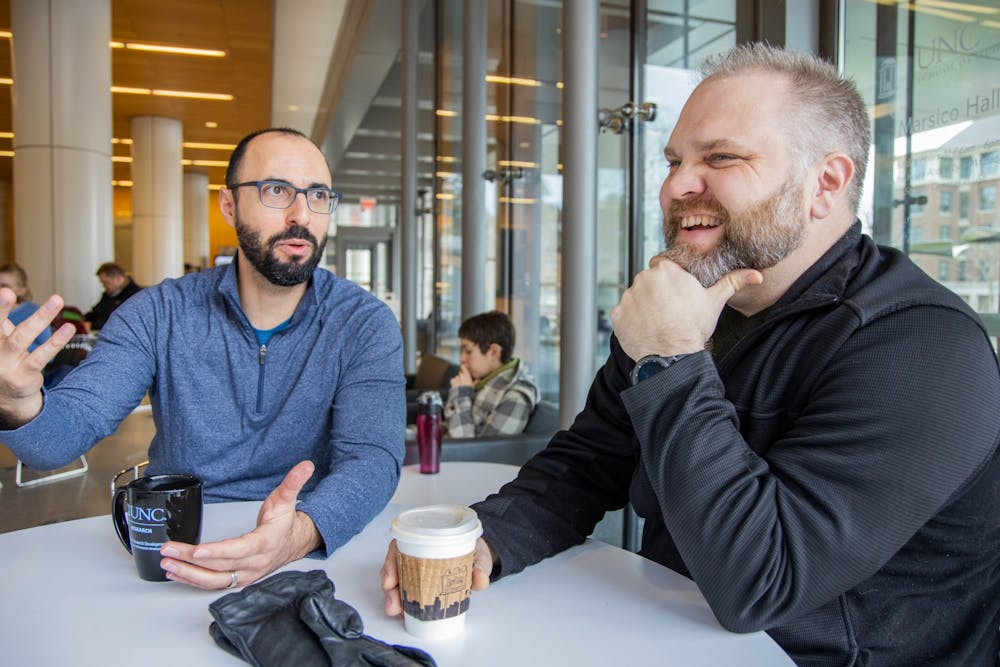Two UNC professors met over a cup of coffee six years ago. Now, they are conducting research together to cure Alzheimer’s Disease.
Jonathan Schisler is an assistant pharmacology professor who studies proteins in the heart, and Todd Cohen is an assistant neuroscience professor who studies proteins in the brain.
“We just got together one day and said, ‘Hey, we have similar interests,’” Cohen said.
Cohen said he knew of Schisler when they were both students at Duke University, but the two only formally met when they became professors at UNC. They decided to work together after realizing how similar their research interests were.
Since then, the pair has received a grant for $3.1 million from the National Institute on Aging to research potential cures for Alzheimer’s Disease. To do so, they turned to a subject they both know well — proteins.
A common protein known as tau can become misshapen and lead to a buildup of unhealthy cells causing Alzheimer's Disease in the brain and cardiomyopathy in the heart, Cohen said.
Schisler and Cohen found that a protein known as CHIP can refold tau and possibly prevent the unhealthy build-up of proteins, which is the subject of their current research.
“There’s lots of common ground between what we work on, even though they’re completely different organs,” Schisler said.
Though Schisler and Cohen study different parts of the body, both have backgrounds in biochemistry. Cohen said the differences in their studies complement each other.



